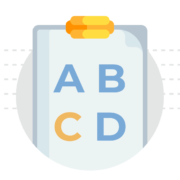Give Us a Call
Prospective Members
Toll-free: (866) 798-1530 (TTY 711)
Current Members
Toll-free: (855) 570-1600 (TTY 711)
Local: (831) 574-4938 (TTY 711)
We’re Here For You
Hours
October 1 to March 31
7 Days a Week
8 a.m. to 8 p.m. PT
April 1 to September 30
Monday – Friday
8 a.m. to 8 p.m. PT
Presented by
Aspire Health is a Medicare Advantage HMO plan sponsor with a Medicare contract. Enrollment in Aspire Health depends on contract renewal.
Medicare beneficiaries may also enroll in Aspire Health through the CMS Medicare Online Enrollment Center located at http://www.medicare.gov. Every year, Medicare evaluates plans based on a 5-star rating system. For accommodation of persons with special needs at meetings call 1-855-570-1600 (TTY: 711) Other Providers are available in our network. Out-of-network/non-contracted providers are under no obligation to treat Aspire Health members, except in emergency situations. Please call our customer service number or see your Evidence of Coverage for more information, including the cost-sharing that applies to out-of-network services. For a complete list of available plans please contact 1-800-MEDICARE (TTY users should call 1- 877-486-2048), 24 hours a day/7 days a week or consult www.medicare.gov.
Some content on this page is saved in an alternative format. To view these files, download the following free software.
PDF Documents: Get Adobe® Reader®
© Copyright 2025 – Aspire Health – All rights reserved. H8764_WEB







